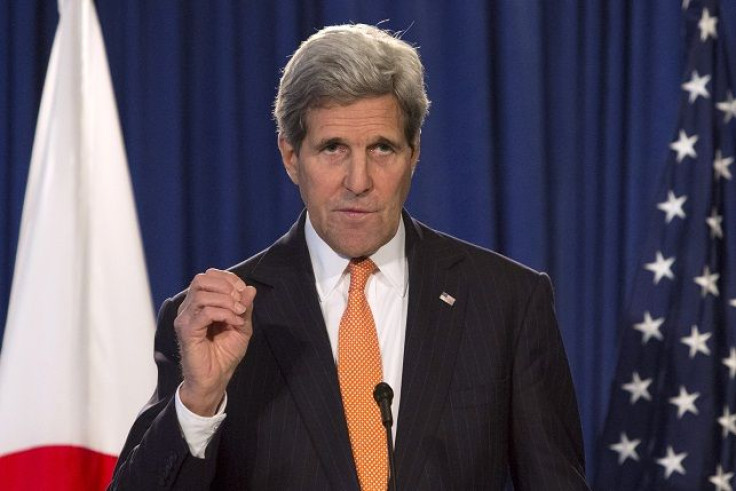Dollar will suffer if US made to exit Iran nuclear deal, warns John Kerry

John Kerry, the U.S. Secretary of State has warned detractors of the nuclear deal with Iran that if the U.S. is forced to walk away from the agreement, there will be a loss of confidence in U.S. leadership and subsequently it may threaten dollar's position as the world's reserve currency.
"If we turn around and nix the deal and then tell them, 'You're going to have to obey our rules and sanctions anyway,' that is a recipe, very quickly ... for the American dollar to cease to be the reserve currency of the world," John Kerry said. Observers see it as a message to lawmakers against killing the July 14 Vienna agreement signed between Iran and world powers that Kerry helped to negotiate. The Congress has time until Sept. 17 to act on the deal.
Kerry said a potential loss of U.S. financial and political clout is something that may not happen overnight. But many countries are 'chafing" under the present international financial arrangements, referring to the discomfort faced by many U.S. allies with regard to sanctions on Iran. However, Kerry’s argument was countered by Boris Schlossberg, managing director of New York-based FX Strategy, BK Asset Management. He said the dollar’s status could be compromised only if the United States was unable to compete economically on a global scale.
Though economists have been saying a competing currency like the euro or the yuan may dethrone the dollar as and when global trade and financial patterns shift, the U.S. currency’s might has not been affected because of the lack of a strong alternative.
Before Kerry’s subtle message came, President Barack Obama also accused critics of the Iran deal of making common cause with Iranian hardliners who chant “Death to America.” Making a strong case to view the Iran deal on the basis of merits, Kerry reiterated its quality, "I think the merits are very, very strong.” For Iran, the agreement will offer some relief from the economic sanctions slapped on it by the West, in return for the strict curbs on its nuclear program, which the West suspects, is for making a nuclear bomb.
Obama’s options
Meanwhile, there is a debate whether President Obama has a secret back up plan in case the deal is rejected by Congress, given the intense resistance it is facing in Capitol Hill, where Sen. Chuck Schumer of the Democratic Party also announced his opposition to it. Any rejection of the Iran deal, followed by a Presidential veto will cancel Mr Obama’s existing authority to waive Congress-approved sanctions on Iran’s financial and industrial sectors, reports Politico.
But Mr Obama can revoke some sanctions that were imposed without the involvement of Congress. Those may include lifting of restrictions on loans and credits to designated Iranian companies and individuals.
(For feedback/comments, contact the writer at feedback@ibtimes.com.au or let us know what you think below)






